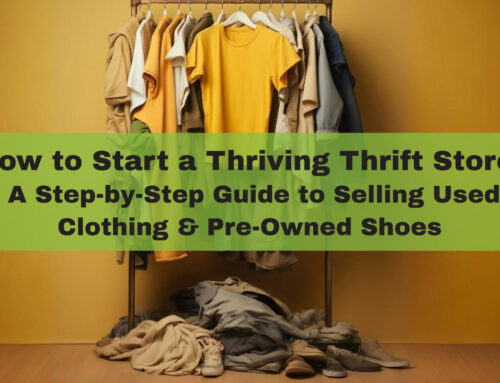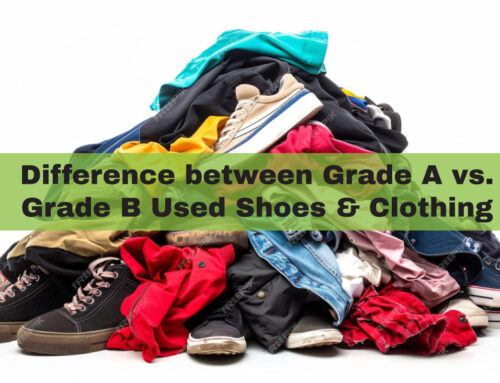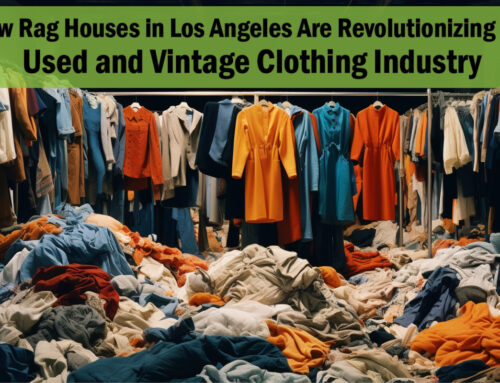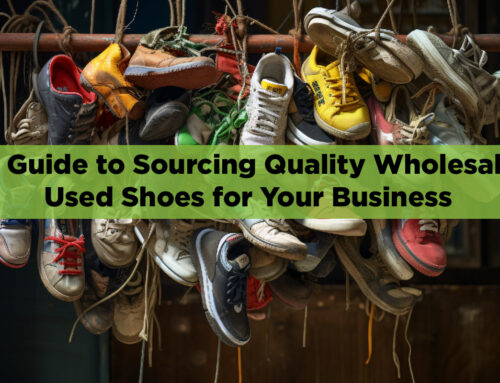Footwear has always been an integral part of our culture. Since the beginning of human history, mankind has sported some type of footwear. Along with our evolution, shoes have evolved as well. Modern footwear encompasses a wide range of styles and designs such as flats, sandals, high heels, stilettos, running shoes, boots, etc.
Can you visualize stepping out of your house without some type of footwear on your soles? Disappointingly, millions of people around the world are unable to afford new footwear or even second-hand shoes. Many families in places like Africa and Central America must make do without shoes. Some families are so poor that they travel daily to and from work on bare feet. Can you ever imagine going to work or school without shoes?
Luckily, some organizations make quality, refurbished, second-hand shoes available at very affordable prices to these families.
Samiyatex has been upcycling used shoes since 1992. We take donated shoes and recycle them before selling the second-hand shoes in bulk to private importers and non-profit organizations. These are distributed to micro-entrepreneurs in developing countries where individuals can acquire and sell them by piece and support their families.
The next time you think about throwing your old sneakers or broken high heels into the trash, think again! They can be mended and sent to families in emerging nations who are in desperate need of quality footwear.
What does happen to donated footwear?
When you donate your worn-out shoes, they undergo a lot of care and restoration. Once a considerable number of used shoes are acquired, they are stored in large containers and sold as second-hand shoes in bulk to thrift stores, non-profit organizations, and private importers in Central and South America, and Africa.
Many charitable institutions will distribute these second-hand shoes for free. The bulk of all quality second-hand footwear is resold in developing nations where there is a huge market demand for second-hand shoes. Revived footwear is affordable to the local people living in that particular country. It helps boost income for second-hand shoe vendors and for those who transport them and perform additional repairs on them.
The practice of accepting second-hand shoe donations is entirely banned in Africa. The reason for this is that many vendors were taking in free second-hand shoe donations and selling them for a higher price. To curb this unfair practice, micro-entrepreneurs purchase quality, refurbished shoes and sell them to needy families at rock-bottom prices without affecting their financial stability.
What happens to the money that is raised from selling second-hand shoes?
Having access to usable and affordable shoes prevents many problems related to walking with bare feet. For instance, did you know that around 24% of the world’s population is ill with some type of soil-transmitted infections! The most common types of infections are threadworm and hookworm. These are preventable conditions with a simple solution: by keeping feet covered with second-hand shoes. In addition, people who don’t have shoes are more susceptible to getting lacerations on the feet. Over time, these may become infected and lead to bigger medical problems.
There are debilitating social repercussions to be shoeless as well. For instance, most schools require their students to wear shoes along with their uniforms. If students don’t have a pair of shoes, it can affect their ability to get an education. Not having a pair of shoes can affect a person’s ability to go to work and provide for his or her family. Imagine traveling to work on bare feet. The problem becomes compounded in places with extreme weather conditions like heat and rain.
Having access to second-hand shoes helps families who wouldn’t otherwise be able to afford locally-made shoes.
The money gathered from selling recycled and donated footwear in re-invested into projects which assist institutions and charities who are working towards improving the lives of those in need.
In addition to shoes, textiles and clothing are also donated and then recycled.
Why can’t second-hand shoes be just given away?
Collecting donated shoes and clothing and dropping them off in a developing country is simply a quick fix to more complex problems. When shoes are allowed to be resold in local markets, it creates employment for the local population. In addition, some countries like Africa do not permit donations. Second-hand shoes that are sold in small markets not only create meaningful employment but helps organizations reinvest these profits into projects that will help pull poor families out of the cycle of poverty.
Do You Have Used Footwear?
If you have a used pair of shoes, don’t throw them out because they’ll simply end up in the landfill. Most second-hand shoes and clothing can be revived and given a new purpose. Your donation can help families in need. Get in touch with Samiyatex to learn about how you can help.






